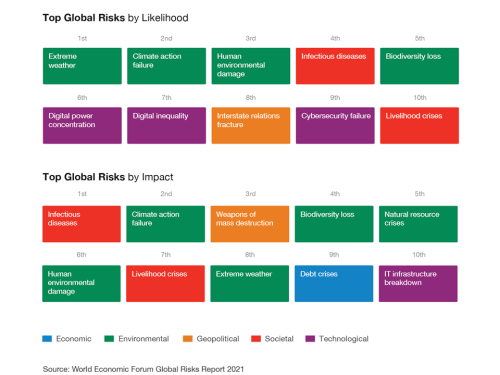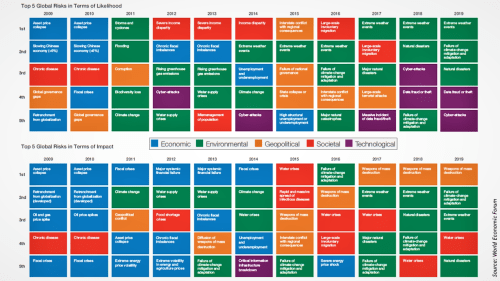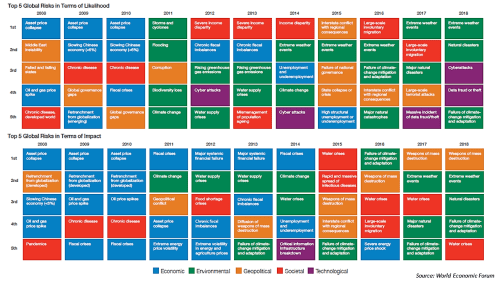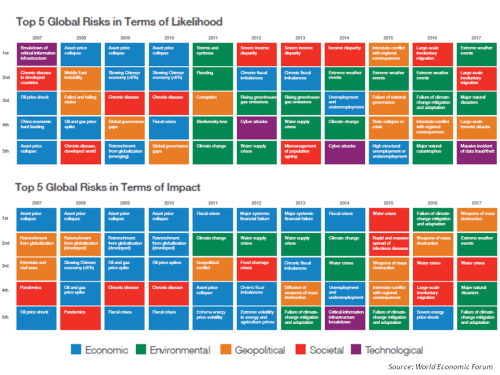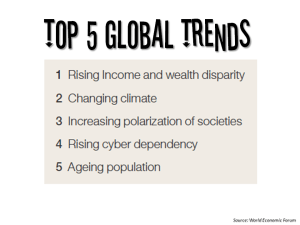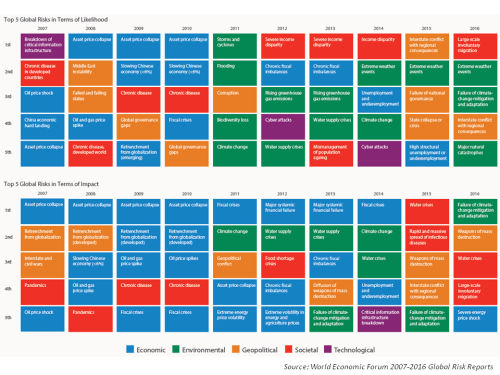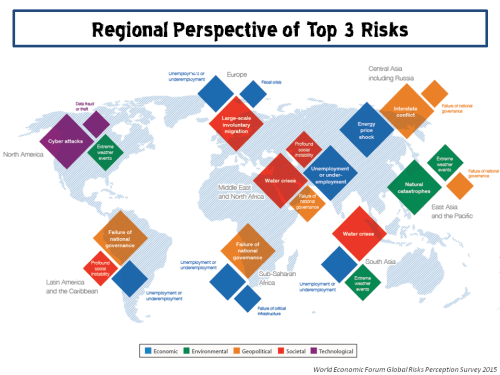This week kicks off the World Economic Forum (WEF). The great and the good will not be flying in from all around the globe, as many did previously on their private jets, to pontificate on the world’s problems as this year the event is virtual. The situation seems apposite given the mess we are in and the prevalence of environmental risks highlighted in the Global Risks report that precedes each meeting, as shown in the list below.
Infectious diseases have made an obvious come-back onto the list after an absence of 10 odd years. To be fair, nobody foresaw the likelihood or impact of the Covid-19 pandemic and identifying global risk are inherently uncertain. One article that caught my attention on the WEF website was on the link between climate change and pandemics. I did see a TV report earlier this year that highlighted how land development in China was encroaching upon the natural habitat of wildlife resulting in more contact between humans and animals that could be an explanation for the initial Chinese outbreak, if indeed that is where Covid-19 first began (just to ensure I do not sound like the orange vainglorious one!). But that report didn’t stick in my mind. Until now.
As the WEF article highlights, the World Health Organization (WHO) has stated there is no evidence of a direct link between climate change and Covid-19. However, they acknowledge that changes in living environments of the animals on Earth caused by climate change may impact infectious diseases. Dr. Anthony Fauci co-authored a paper in September that stated “the COVID-19 pandemic is yet another reminder, added to the rapidly growing archive of historical reminders, that in a human-dominated world, in which our human activities represent aggressive, damaging, and unbalanced interactions with nature, we will increasingly provoke new disease emergences.”
Although not a journal noted for its medical or scientific expertise, this article in December from Rolling Stone on the topic frightened the hell out of me. Just another happy thought to add to expanding list these days! If I had read an article like this a year or older ago, I would likely not have given it as much thought as I do now. And that is a reflection on what the last year has done. Lists of risks such as those in the WEF Global Risks report seem a lot more real today.

